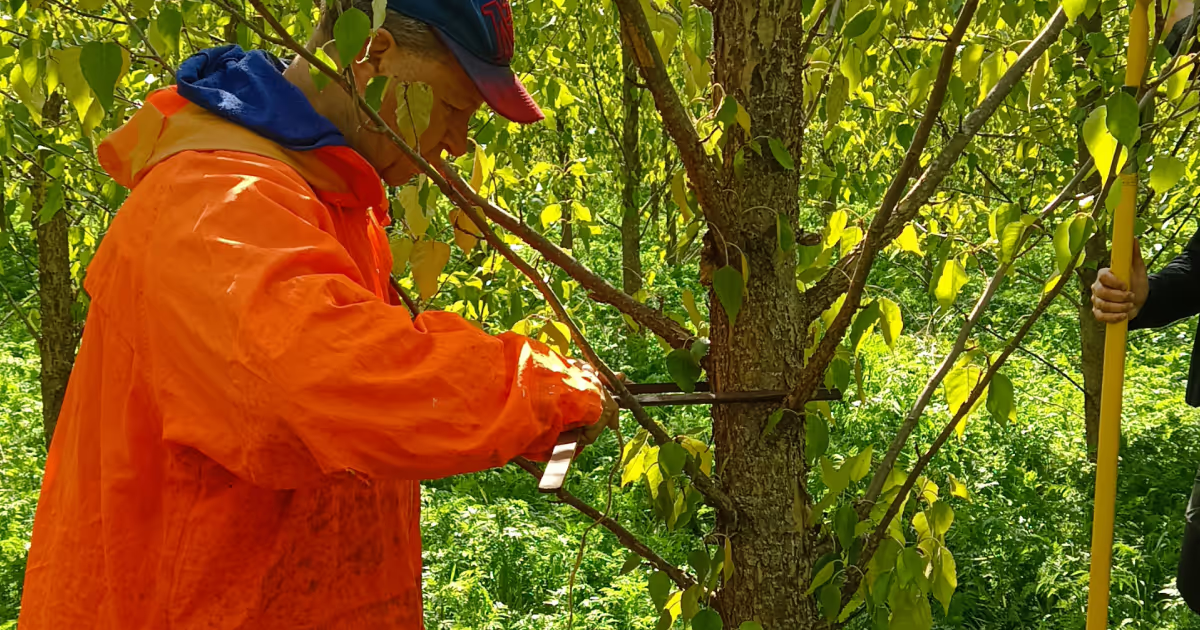What landowners need to know about the Verra project journey
The voluntary carbon market is complex to navigate if one is new to it. So, when new projects are announced, it can be difficult for landowners to know which ones can deliver credits soon and which might be years away.

The most critical point of confusion is the difference between a project being listed in a registry and one being officially registered. The implications for a landowner are significant, but this distinction isn't always made clear by project developers. Understanding this specific process is the key to knowing where any project truly stands.
The four key stages to registration
At Ecobase, we develop our projects under the Verra (VCS) standard, and this involves a rigorous, multi-year journey from an idea to a registered project which can issue credits. The project work starts long before the project even appears in the registry. After extensive research and methodology selection, the project design is drafted and submitted. Once approved for listing, the public journey can begin.
1. Under development
This is the first public stage. The project is now listed in the registry, but it's at the very beginning of its journey. At this point, the developer is finalizing the project design, contracting an independent third-party auditor (Validation and Verification Body - VVB), and opening the project for a 30-day public comment period.
- Typical Timeline: ~12 months for forestry projects, including the initial research and project design phase before listing. However, this is also the stage where many projects get stuck as well and do not move further.
2. Under Validation
This is the most intensive phase. The independent VVB conducts a deep, technical audit, checking everything against the methodology's strict requirements. This involves reviewing all data and conducting site visits. For our IFM project, the site visits for example meant auditors visiting their chosen sites in all four countries—Estonia, Latvia, Sweden, and Finland—to conduct independent measurements and interview landowners.
- Typical Timeline: ~12 months, often including several rounds of questions.
3. Registration Requested
After the project successfully passes the VVB's audit, the final, validated report is submitted to Verra for its own internal review. This is the final quality check from the standard itself.
- Typical Timeline: In minimum a few months.
4. Registered
Project is officially approved by Verra and enters the operational phase. Only after this stage is completed is a project eligible to have its carbon credits issued.
The key takeaway: Listed does not mean project registration
As you can see, a project that is listed in the registry can be at any stage before registration. A project that is only in the "Under Development" stage can still be years away from being validated, approved, and ready to issue credits.
This distinction is crucial when evaluating opportunities of joining a carbon porject. We believe in full transparency, which is why we encourage landowners to verify this information themselves. You can always check if the project is registered and the current, official status of any Verra carbon project (including ours) directly in the public Verra VCS Registry. Other major standards, like Gold Standard, have their own public registries as well.
Our approach: Proven standards and methodologies
Our strategy at Ecobase is built on two key principles: choosing the most credible standard and using proven, operational methodologies.
We develop our projects under Verra's Verified Carbon Standard (VCS) because it is the most recognized standard for high-integrity buyers globally, accounting for 57% of all forestry and land use (AFOLU) credits transacted according to 2025 State of the Voluntary Carbon Market by Ecosystem Marketplace. Within Verra, our focus is on methodologies that can deliver real credits on a predictable timeline.
Where Ecobase projects stand today
- Our Afforestation and Reforestation (ARR) project is the first pan-European ARR project to reach registration under Verra. The first credits were issued and sold at the end of 2024 to Rubicon Carbon, and landowners in the project have already earned real income from the project. We are issuing credits from the project annually. In countries we are operating in most cases, we are the only developer who has issued credits and earned income for landowners.
- Our Improved Forest Management (IFM) project has successfully passed its validation audit and is now in the Registration Requested phase. We expect registration in the near future, with the first credit issuance in 2026.
Our view on new and developing methodologies
We are, of course, keeping a keen eye on new frameworks like the EU's EUCRCF and other methodologies within Verra like Verra’s VM0045, which includes peatlands (not part of our current VM0003 methodology). However, VM0045 is not yet finalized for use in Europe. Verra is still adapting it for our region, a process expected to be completed in late 2026 at the earliest.
We will be ready to explore new methodologies once they are finalized and viable, but our focus today is on delivering measurable impact through the robust frameworks that work already right now.
Ecobase is the largest forest carbon project developer in Europe.
We develop high-quality forestry projects that allow landowners to access carbon finance and help corporations to achieve their sustainability goals.